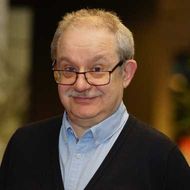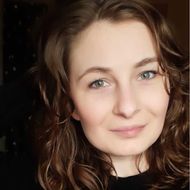- A
- A
- A
- ABC
- ABC
- ABC
- А
- А
- А
- А
- А
- HSE University
- Faculties
- Faculty of Social Sciences
- School of Sociology
- News
- New knowledge about Russia.The new issue of ‘Universe of Russia’ (2016, No. 4) has been released
Address: 101000, Moscow,
11 Myasnitskaya Ulitsa.
Phone: 8 (495) 772-95-90 *12349
Email: izangieva@hse.ru
The School of Sociology aims to train future social analysts in sociological reasoning to address the needs of social life, business, politics, public administration, and the media. To this end, the school works to develop a close link between education and research, as well as application-oriented education, internationalization of research and education, and close networks with major employers on the labour market.
In press
Abashkin V., Abdrakhmanova G., Vishnevskiy K. et al.
M.: HSE, 2025.
In press
Communist and Post-Communist Studies. 2024.
Alekhina S., Kozlova M. A.
In bk.: Inclusive education in the Russian Federation: Scoping International and Local Relevance. Springer, 2024. Ch. 9. P. 169-188.
OSF, 2024

New knowledge about Russia.The new issue of ‘Universe of Russia’ (2016, No. 4) has been released
In the new issue we have managed to bring together both Russian and non-Russian authors (UK, Belarus and France), which is part of the journal’s mission to provide a broader outlook of Russia, its internal diversity and the world that surrounds it. The current issue features three thematic sections.
The first one focuses on the consequences of social and economic transformations in post-socialist countries. It opens with the article by D. Lane, who compares the outcomes of transformations based on variety of sources (official statistics and survey data) across a wide range of countries. The second article is more specific and contains analysis of changes in Belorussian agriculture by R. Hervouet and A. Kurilo, who base their arguments on in-depth ethnographic observations. This article is further commented by M. Chernysh, who critically engages with the arguments of Hervouet and Kurilo.
The second section focuses on the issues of education. In this section M. Kurbatova reflects on the reforms of higher education in Russia as a project instigated primarily by and for the Russian bureaucracy; D. Didenko and Z. Dorofeeva formally explore the scales and returns to adult education in Russia; and S. Kosaretsky et al. discuss the evolution of educational policies in Russia in the context of social inequality.
The third section focuses on the issues of subjective social status and identity formation. A. Vanke and I. Tartakovskaya explore the transformation of masculinity among Russian workers, and A. Zudina investigates the dynamics of subjective social status in the case of unemployment.
The issue closes with a regular review article, in which N. Pliskevich reflects on the search for the new economic strategy by discussing the works and ideas of Evsitgneev and Evstigneeva.
The reader should be has brought together authors coming from various parts of Russia (Moscow, Saint-Petersburg, Kemerovo).
- About
- About
- Key Figures & Facts
- Sustainability at HSE University
- Faculties & Departments
- International Partnerships
- Faculty & Staff
- HSE Buildings
- Public Enquiries
- Studies
- Admissions
- Programme Catalogue
- Undergraduate
- Graduate
- Exchange Programmes
- Summer Schools
- Semester in Moscow
- Business Internship
-
https://elearning.hse.ru/en/mooc/
Massive Open Online Courses
-
https://www.hse.ru/en/visual/
HSE Site for the Visually Impaired
-
http://5top100.com/
Russian Academic Excellence Project 5-100
- © HSE University 1993–2024 Contacts Copyright Privacy Policy Site Map
- Edit



